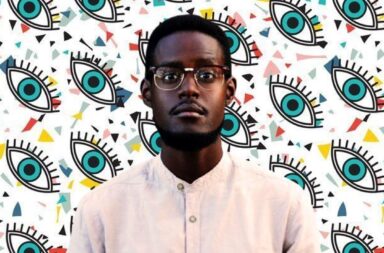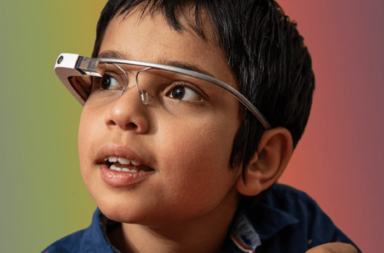Siena Castellon is someone who needs little introduction to Autistic & Unapologetic regulars. Having featured in not 1, not 2, but 3 autism news round-ups, Ms Castellon and her site (www.qlmentoring.com) are undoubtedly one of my most recommended resources to date. Siena’s incredible work hasn’t only been recognised by myself though as, outside the pages of this site, Siena has received a Teen Hero Award, The Diana Award and more accolades than can possibly be squeezed into a single opening paragraph.
As such, when the time came to sit down to write an article for the upcoming Anti-Bullying Week, I knew there was no way I could cover this topic half as well as I know Siena could. So, without hesitation, I reached out to Siena, to see if she could share some thoughts on the topic, and honour me by being my first guest writer on Autistic & Unapologetic.
What follows is Siena’s comprehensive response to my request to write a bullying article.

Taking a Stand Against Autism Bullying by Siena Castellon
The latest police statistics show a 33% increase in disability hate crime across England and Wales from 2017 to 2018. These statistics are shocking because they speak volumes about the society we live in. There are people who are targeting some of society’s most vulnerable people and deliberately harming them. I know, because I am one of the many victims of a disability hate crime.
I was recently very fortunate to be invited to Kensington Palace to meet the Duke and Duchess of Cambridge. During my visit, I talked about my website (www.QLMentoring.com), my autism advocacy and my anti-bullying campaign. Kate was interested in finding out more about my disability-related bullying experience. I told her that I have been bullied at school my whole life and that my experience is not unique. I mentioned that in a recent survey by Ditch the Label, 75% of autistic students and 70% of students with disabilities reported being bullied.
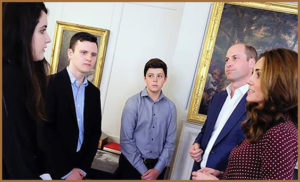
I am autistic, dyslexic, dyspraxic and have ADHD. At times, these conditions have been difficult and challenging. However, by far the most soul-destroying and traumatic experiences I have endured relate to being rejected, mistreated, abused and bullied at school by my peers and by some of my teachers.
Like most people who are autistic, I have a sensory processing disorder that makes me very sensitive to touch, because it causes me pain. It is for this reason that I have always avoided hugs and physical contact. Not long after I started school, the children in my class discovered my sensitivity to pain and used it to entertain and amuse themselves. The children punched, pinched, slapped and kicked me into order to get a comical reaction: a look of horror as my body convulsed in pain.
Later, the bullying would become less physical and more emotional. Although I went to a small private school that prided itself in being a “loving, affirming and encouraging atmosphere,” the school’s ethos did not extend to me. A girl in my Year 4 class of only fourteen students poisoned my school environment. She stopped my classmates from interacting with me, because she decided I was weird. Overnight, I was the only child in the class that was not invited to birthday parties. I was the child they laughed at, called cruel names and made fun of. I was the child who they falsely accused to teachers, because they found it amusing to get me in trouble. One day, the bully deliberately pushed me down a flight of stairs, and the school did not believe me. Eventually, I lost my appetite, was unable to sleep, began to have stomach aches, developed anxiety and began having crippling panic attacks. I was eight years old.
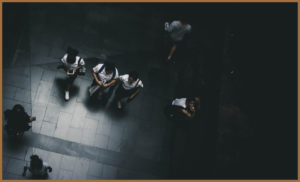
When I got older, the bullying would become more manipulative and Machiavellian. My passion had now evolved into maths, physics, philosophy and reading. While I was immersed in reading Camus and Dostoevsky, my 12-year old contemporaries were focused on make-up, selfies and fashion. Once again, I became an easy target.
My belongings were defaced: offensive, derogatory comments were scrawled on my books. My school planner was dropped into the toilet. I was attacked with hockey sticks. When my bullies were caught, they pretended to be distressed, cried crocodile tears and promised never to bully me again. On the other hand, I stood stoic, unemotional and detached, which the school interpreted as an indication that I was unaffected. And so, more sympathy was given to the bullies who appeared more upset than I did, the same bullies who would later gloat and laugh about having manipulated the school staff. With each new incident, my bullies got bolder and more cavalier.
The school initially told my parents that they did not tolerate bullying and would stop the bullying, but as the bullying continued to escalate, the school shifted its focus and started to blame me. Why didn’t I make more effort to fit in? What had I done to provoke the abuse? Why did I have to be so eccentric; so different? A predictable response we had gotten accustomed to hearing.
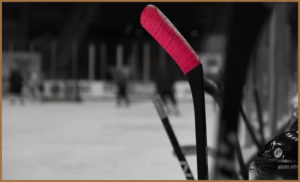
As I became a teenager, the bullying took an even more sinister and morose tone. By this time, I had been diagnosed with autism and my new school was aware of my history of having been bullied. In Year 10, two boys who had been bullying me for months and had been threatening to get me locked up in a “psych ward,” finally put their plan into action. They told senior staff that I had serious mental health issues, was suicidal, had imaginary friends and made lots of other outlandish accusations. Their actions and the false rumours they spread about me caused me to become a social pariah at school.
The continued bullying. The school’s approach to dealing with the bullying (which was to deny that any bullying was taking place) caused me significant distress and anxiety. Despite the fact that one of the bullies admitted to making derogatory comments about my disabilities to my classmates, the school repeatedly denied that I was being bullied and instead insisted that it was “my perception,” that “lads will be lads” and that my bullying claims had no basis in reality. The school described my two bullies as “lovely,” whereas I was described as having it “in” for people.
It was not long before I was diagnosed with bullying-related PTSD and that my physical and emotional wellbeing deteriorated. Once again, I was forced to leave a school; forced into jeopardising my education and my future, while my bullies’ lives went on.
This time, I decided to take a stand. I resolved to hold my bullies accountable for their actions. I was 14 years old and had spent my entire school life running from my abusers. I decided to report the disability hate crime to the police.
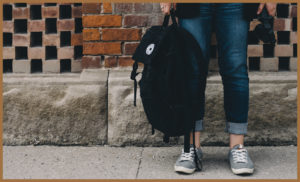
You may be asking yourself what the definition of a disability hate crime is? A disability hate crime is any criminal offence that is motivated by hostility or prejudice based on a person’s disability. It can take many forms, such as physical attacks, threats, intimidation and verbal abuse, insults and harassment.
For three months, the boys relentlessly bullied me for my disabilities. They had repeatedly called me derogatory names, such as “freak,” “retard,” “weirdo,” “psycho,” “idiot” and “stupid.” They made derogatory comments about my autism. They claimed the only reason I won a prestigious academic scholarship to the school was because the school had decided to give it to a disabled person to appear more inclusive and diverse. They accused me of only having imaginary friends, because no one would want to be friends with me. They told my classmates I tortured my dog and to avoid me because they claimed I was a psychopath. They told my classmates that I lied about my dyspraxia to get out of sports and lied about my dyslexia to get extra time on exams. They repeatedly threatened to get me looked up in a “psych ward” and did their best to make this a reality.
The abuse, insults and harassment they directed at me, because of my disabilities, is the type of behaviour that the law was designed to prevent and was intended to protect us from. Yet, the police did not take my disability hate crime report seriously.
Once again, the focus was on protecting the bullies. My parents were told it would be unfair to criminalise them for having bullied me. I was told that I had left the school and so the bullying was no longer an issue. The fact that it was the boys’ actions that had forced me to leave the school did not matter. The fact that their actions had jeopardised my education and my future also did not matter. Nor did it matter that I was suffering from PTSD and would forever carry the scars of their hate, intolerance and abuse. Once again, I was let down by a system that was supposed to protect me.
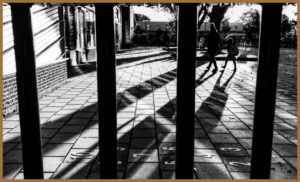
Am I surprised that disability hate crimes have increased by 33% in a year? No. We live in a society that targets its most vulnerable members. I have experienced this first hand. It is my experience that bullies are rarely held to account. Instead, we are told to have a sense of humour, to ignore the bullies and to avoid them. When that fails, we are blamed.
Schools need to look at the way they deal with disability-related bullying. According to a recent Diana Award back-to-school poll of 1,000 students, 25% reported having to move to a different school because of bullying. I suspect this percentage is even higher for SEN students. First and foremost, schools need to believe us and need to take disability-related bullying seriously. I have had a SENCO tell me that I needed to have a sense of humour and stop being so “sensitive” about being called derogatory and disparaging names. The same SENCO also told me that my autism caused me to misunderstand social situations, such as being threatened with being placed in a “psych ward”. Schools must recognise that their words and actions have consequences; that they set the tone and the atmosphere of their school. When schools treat their autistic students as second-class citizens, they open the door to them being bullied and abused.
Schools also need to stop blaming the victim. Just because I am different or eccentric or a math nerd, doesn’t mean I deserve to be bullied. No one deserves to be bullied. No one. By excusing the behaviour of the bullies, schools are not only letting down their most vulnerable students, but are also reinforcing negative behaviour. They are teaching bullies that their behaviour is acceptable. In other words, schools are letting both of us down. If schools want to tackle bullying and teach their students to be tolerant and accepting of others, they will have to begin to enforce their zero-tolerance bullying policy and will have to create a school environment that encourages students to accept and support one another, irrespective of their differences.
Finally, schools need to encourage their students to be UPstanders, to stand up and speak up when they witness someone being unkind. For me, one of the most traumatic aspects of being bullied was the number of people who witnessed the abuse and who did nothing. At one school I attended, the senior staff actively discouraged students from getting involved. I recall one incident, in which a well-meaning student informed me that my bullies were continuing to spread false rumours about me and were still making derogatory remarks about my disabilities. When we approached the deputy head with this information, the deputy head chastised the student for telling me about the bullying and for getting involved. The deputy head claimed that the student had only made things worse. This archaic approach to bullying, ensures that the bullies are not held to account and strips the victim of any support system; leaving them isolated and alone.
Studies have shown that the most effective way to combat bullying is through peer pressure, through having UPstanders who defend vulnerable students from being mistreated and abused. Since schools are moulding the adults of the future, schools should encourage their students to intervene when they witness an injustice and when they witness abuse.
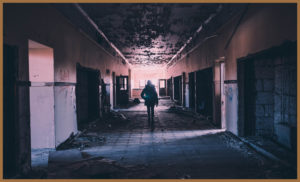
Last year, I created the #AlwaysBeKind Instagram campaign. I created the campaign to spread the message that we should all be kind and supportive of each other. Every person has their individual challenges and struggles, maybe as a result of their religion, race, ethnicity, gender, sexuality or disability. Whatever our differences, we need to build each other up, to create communities that look past what sets us apart and instead focus on being accepting and tolerant of others.
I believe we should be creating supportive, inclusive communities where we embrace one another for who we are. I believe that schools should encourage their students to be UPstanders. There should be no room in our society for intolerance and hate, for cruelty and disdain. No room for disability hate crimes. As we celebrate Anti-Bullying Week, my hope is that we will be kinder to each other. #AlwaysbeKind.
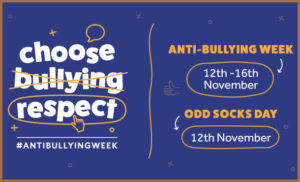
Carry on the Conversation:
I’d like to thank Siena for sharing her insightful, personal and educational experiences today (I know it couldn’t have been easy for her). If you have any recommendations on how to tackle this type of behaviour and improve our community’s experience, please leave a comment below.
For more from Siena, be sure to check out her wonderful site: www.qlmentoring.com or find her on Twitter and Instagram @QLMentoring
As always, I can also be found on Twitter @AutismRevised and via my email: AutisticandUnapologetic@gmail.com.
If you like what you have seen on the site today, then show your support by liking the Autistic & Unapologetic Facebook page. Also, don’t forget to sign up to the Autistic & Unapologetic newsletter (found on the sidebar on laptops and underneath if you are reading this via mobile) where I share weekly updates as well as a fascinating fact I have found throughout the week.
Thank you for reading and I will see you next Saturday for more thoughts from across the spectrum.

